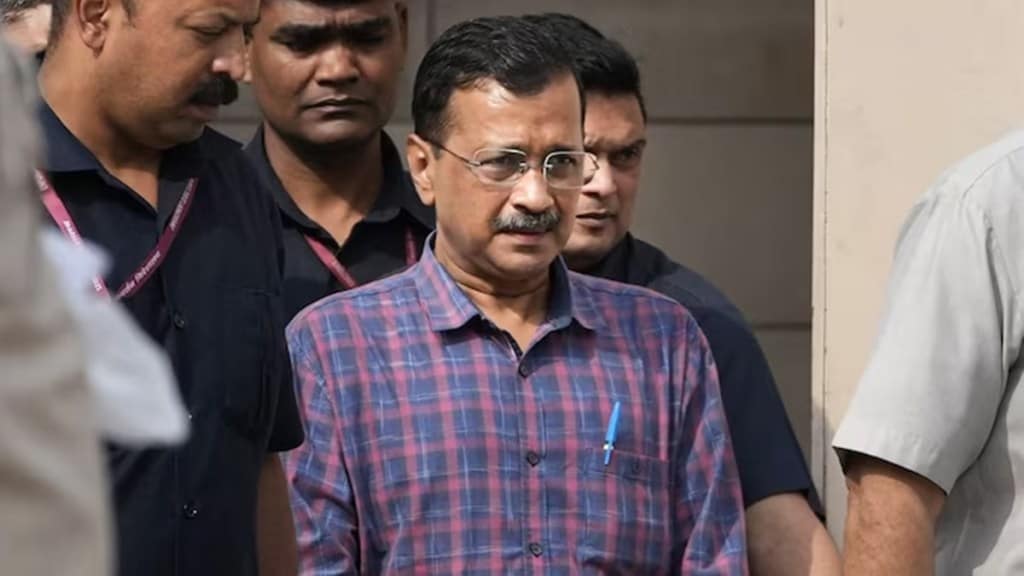The Delhi High Court on Tuesday rejected Chief Minister and Aam Aadmi Party (AAP) supremo Arvind Kejriwal’s plea challenging the arrest by the Enforcement Directorate (ED) in a money laundering case in connection with the now-scrapped excise policy.
In his plea, Kejriwal had stated that his arrest was in violation of Section 19 of the Prevention of Money Laundering Act (PMLA).
Hours after being denied protection from coercive action by authorities, AAP supremo and Delhi Chief Minister Arvind Kejriwal was arrested by Enforcement Directorate (ED) officials from his Civil Lines residence on March 21 in connection with a now-scrapped excise policy case.
This development followed a visit by a team of ED officials to his residence for interrogation, as Kejriwal had refused to comply with nine summonses issued by the probe agency, leading to his arrest late at night.
Subsequently, on March 22, he was sent for ED custody for seven days. On March 28, the Delhi High Court further extended Kejriwal’s ED custody until April 1.
Meanwhile, Kejriwal moved the Delhi High Court against his arrest by the ED, arguing that the manner in which the probe agency acted violated his fundamental rights. However, Kejriwal’s legal challenges continued as he was later sent to judicial custody till April 15 and was transferred to Tihar Jail.
The Enforcement Directorate, which had arrested Kejriwal in connection with the now-scrapped Delhi excise policy case, sought 15 days of judicial custody, alleging that he was uncooperative, evasive, and provided misleading replies during questioning.
Also Read: Fresh plea in Delhi High Court seeking Arvind Kejriwal’s removal as Chief Minister
In its remand application, the ED alleged that Kejriwal had limited interaction with AAP communication in-charge Vijay Nair, a co-accused in the case. However, evidence suggested Nair’s close association with Kejriwal’s cabinet colleagues.
What is the case against Arvind Kejriwal?
The case against Kejriwal revolves around the now scrapped Delhi excise policy of 2021-22. The Enforcement Directorate (ED) alleged that this policy was part of a conspiracy to provide certain private companies with a wholesale business profit of 12 per cent, despite no mention of such a provision in the Group of Ministers (GoM) meeting minutes.
The agency further accused Vijay Nair and others of coordinating a conspiracy, referred to as the ‘South Group,’ to grant wholesalers extraordinary profit margins. According to the ED, Nair acted on behalf of CM Arvind Kejriwal and his former deputy Manish Sisodia.
Also Read: In ED custody, Delhi CM Kejriwal issues first order from jail
Notably, Kejriwal had been issued nine summonses by the ED before his arrest, where he failed to appear and termed the summonses against him as “illegal”. He argued that these summonses and the actions against him were part of a BJP-led conspiracy to undermine him ahead of the Lok Sabha elections.
Kejriwal is the fourth prominent Aam Aadmi Party leader, and the third in the Delhi excise policy case, to face coercive action by the Enforcement Directorate. Manish Sisodia and Sanjay Singh had previously been arrested by the ED in connection with the case. Additionally, Satyendar Jain was in judicial custody in a separate money laundering case.
Notably, last week, after six months of judicial custody, Sanjay Singh walked out of Tihar jail on bail, however, Manish Sisodia, along with Satyendar Jain and Kejriwal, remain in jail.
(With inputs from agencies)


